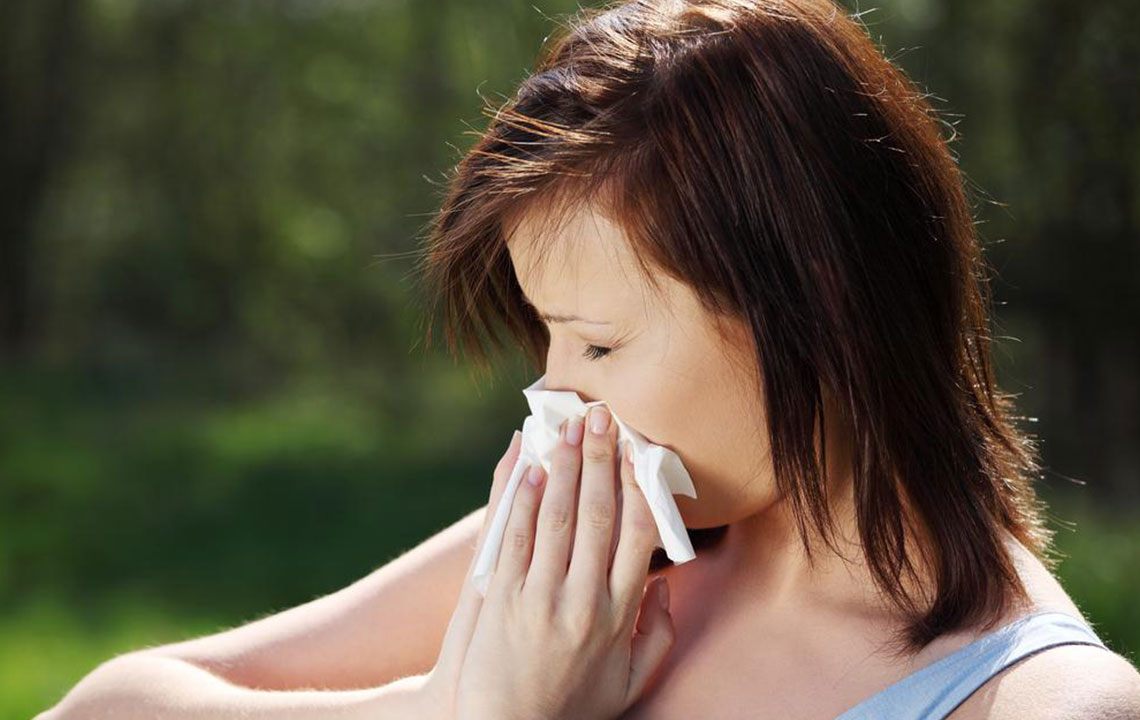Everything You Must Know About Allergies
Do you find yourself sneezing every time the season changes? Can’t enjoy seafood without your throat closing up? There is a good chance that you might have an allergy. Allergic reactions are a hypersensitivity reaction of the immune system to external agents, that are not harmful. Allergic diseases include a wide range of conditions like—hay fever, atopic dermatitis, food allergies, drug allergies, anaphylaxis, allergic asthma, etc. It is to be noted that anaphylaxis is a medical emergency.

Common allergy symptoms are—hives, itchy rash, difficulty breathing, runny nose, red eyes, sneezing, and swelling. Allergies are common throughout the world. Particles or materials that cause an allergic reaction are called allergens . The most common allergens are pollen, insect stings, and food. Some people have allergic reactions to metals such as nickel. Food and drug allergies tend to cause the most severe allergy symptoms.
Allergy Symptoms And Diagnosis
Airborne allergen particles like dust and pollen tend to affect the nose, eyes, and throat a lot. Common nasal allergy symptoms are—sneezing, a runny nose, and swelling of the nasal cavity ( allergic rhinitis ). The eyes may become watery or turn red.
Allergens in the throat can cause difficulty breathing, increased mucus production, sneezing, coughing, and bronchoconstriction. Obstruction of the airway can be a life-threatening situation.
If an allergen gets into the ears, it can cause pain and discomfort, along with swelling.
Ingested allergens like food and medication, can manifest a different set of allergy symptoms. There could be abdominal pain, vomiting, diarrhea, itching, and hives. Food allergies rarely cause asthmatic or respiratory symptoms. However, some food allergies can lead to anaphylaxis . Nuts and shellfish are some of the common food allergens.
Drug allergies can be dangerous and need to be diagnosed quickly. Apart from the usual allergy symptoms, drug allergies can also cause rashes and difficulty breathing. Drug allergies can develop quickly into anaphylaxis. Drugs like penicillin and antibiotics are notorious for causing allergic reactions.
Anaphylaxis is a serious and systemic allergic reaction. It is considered as a medical emergency. The allergic process spreads fast and involves multiple organs like the respiratory system, digestive system, the skin, etc. Without prompt treatment, the person could die.
Insect bites, medications, and food allergens are most likely to cause anaphylaxis.
Anaphylactic reactions can also affect the circulatory system and cause low blood pressure. The severity of the reaction may be easy to judge at first, and sometimes, anaphylaxis can subside and flare up later.
Skin allergies are caused by materials that come in contact with the skin like—latex or talcum powder. This is called contact dermatitis. Skin allergy symptoms usually cause itching and hives, with a characteristic ‘wheal and flare’ pattern of a raised white portion surrounded by reddish skin.
Diagnosis
Testing an allergen on the skin to check for reactivity is the best way to determine if you have an allergy. This patch testing is considered as the best way to check allergy symptoms.
Causes Of Allergies
Most allergic reactions are caused by two types of factors— internal and external . Internal causes are genetics, age, sex, and race. External causes are dietary changes, pollution, exposure to diseases in childhood, and allergen levels.
Food Allergies
Food allergies are quite common. 90% of all food allergies are caused by cow’s milk, soy, wheat, peanuts, and shellfish.
Severe allergic reactions are common with nut allergies but can be caused by any other allergen, especially if combined with a pre-existing respiratory condition like asthma.
Drug Allergies
Drug allergies are not as common as other types of allergies. Penicillin allergies are widely reported, but only 10% are true allergies. Severe anaphylactic reactions are rare.
Other Factors
Allergic reactions are more common in industrialized nations than in agrarian ones. One hypothesis states that exposure to dust, diseases, and other environmental factors help in building a child’s immunity.
Chronic stress can aggravate allergy symptoms and proper stress management may help to reduce allergy symptoms. Genetics play a vital role in allergic reactions. Twins and siblings are more likely to have similar allergic symptoms to similar allergens. Overall, men are more likely to be allergic to something, than women.
Treatment Of Allergy Symptoms
An allergy cannot be cured; the best one can hope for is to manage the allergy symptoms as they arise.
A number of prescription and over-the-counter medications can be used to treat allergy symptoms.
The most common class of drugs used to manage allergies are antihistamines . Antihistamines help to stop an ongoing allergic reaction as well as a prophylaxis. They are available over-the-counter as well as on prescription. They come in various forms like nasal sprays, tablets, capsules, injections, and drops.
Decongestants are great for people with hay fever and other respiratory allergy symptoms. These are usually in the form of nasal sprays and cannot be used for more than a few days due to their rebound effect. Decongestants are also available as pills and syrups.




